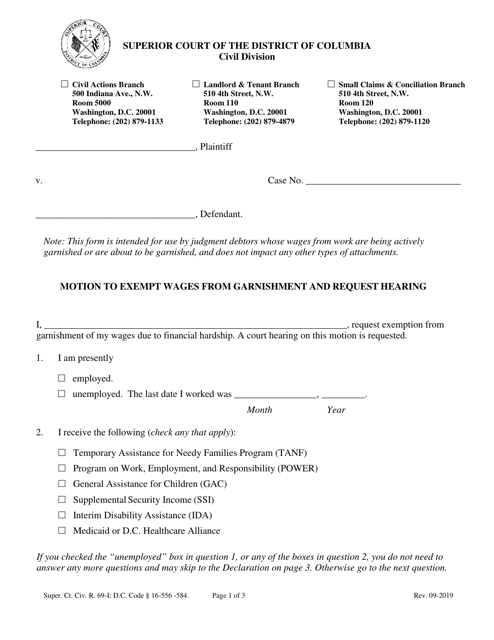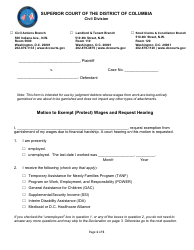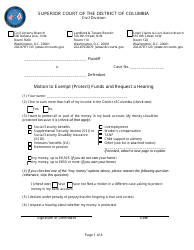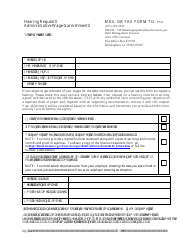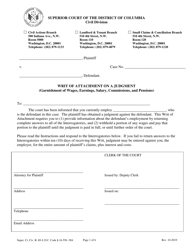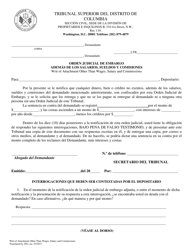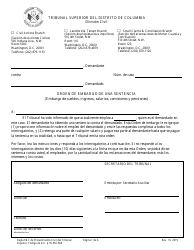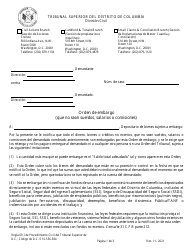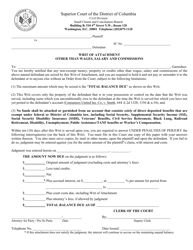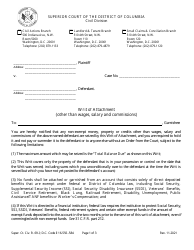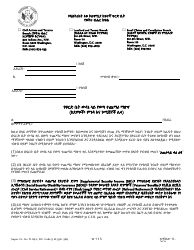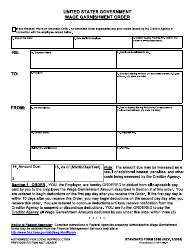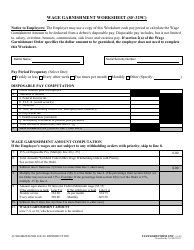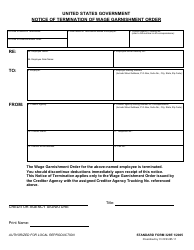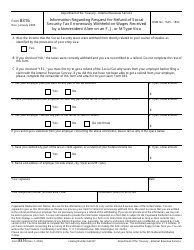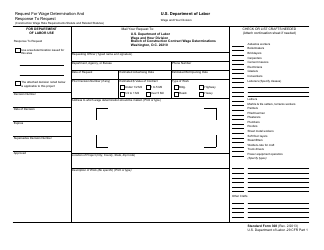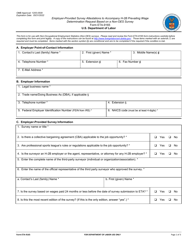Motion to Exempt Wages From Garnishment and Request Hearing - Washington, D.C.
Motion to Exempt Wages From Garnishment and Request Hearing is a legal document that was released by the District of Columbia Courts - a government authority operating within Washington, D.C..
FAQ
Q: What is a motion to exempt wages from garnishment?
A: A motion to exempt wages from garnishment is a legal request to protect a portion of a person's earnings from being seized to pay off debts.
Q: Why would someone file a motion to exempt wages from garnishment?
A: Someone may file a motion to exempt wages from garnishment to ensure that they have enough income to cover basic necessities such as rent, food, and utilities.
Q: What is the purpose of requesting a hearing for a motion to exempt wages from garnishment?
A: Requesting a hearing allows the person to present their case to a judge and provide evidence supporting their claim for exemption.
Q: What information is typically included in a motion to exempt wages from garnishment?
A: A motion to exempt wages from garnishment typically includes the person's name, the amount of their weekly or monthly income, and a description of the basis for the exemption.
Q: Can a person represent themselves in a hearing for a motion to exempt wages from garnishment?
A: Yes, a person can represent themselves in a hearing for a motion to exempt wages from garnishment, but it is recommended to seek the assistance of a lawyer for best results.
Form Details:
- Released on September 1, 2019;
- The latest edition currently provided by the District of Columbia Courts;
- Ready to use and print;
- Easy to customize;
- Compatible with most PDF-viewing applications;
- Fill out the form in our online filing application.
Download a fillable version of the form by clicking the link below or browse more documents and templates provided by the District of Columbia Courts.
